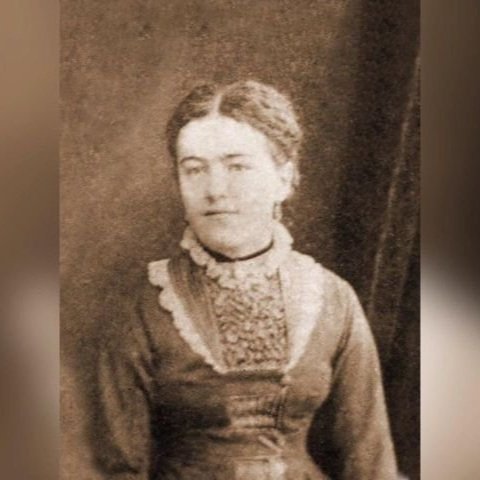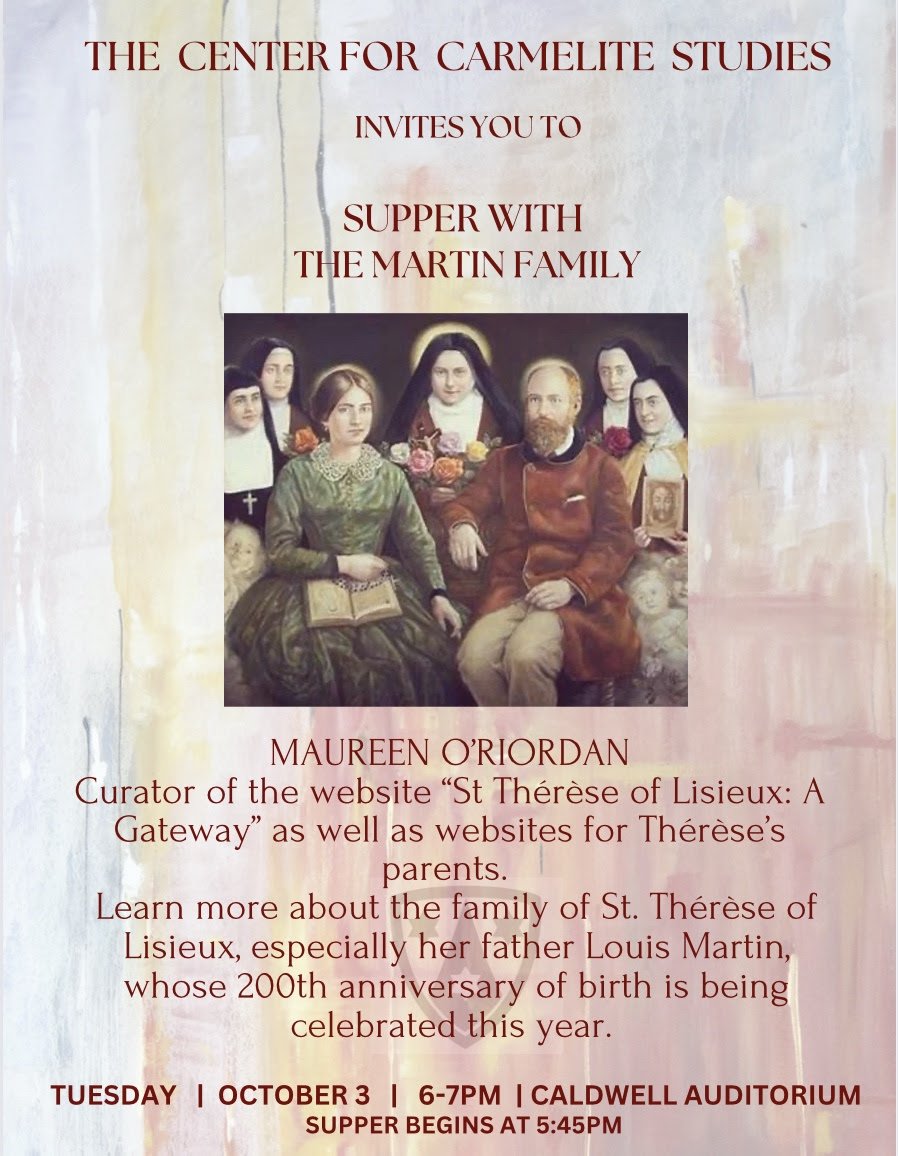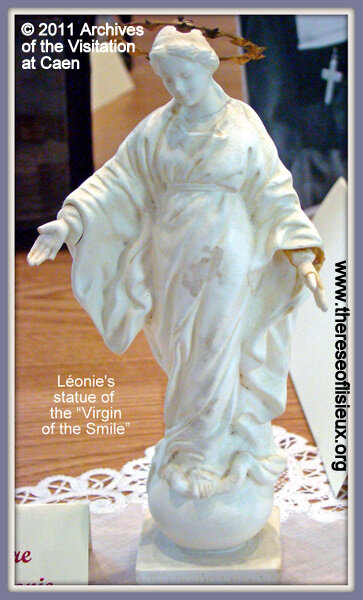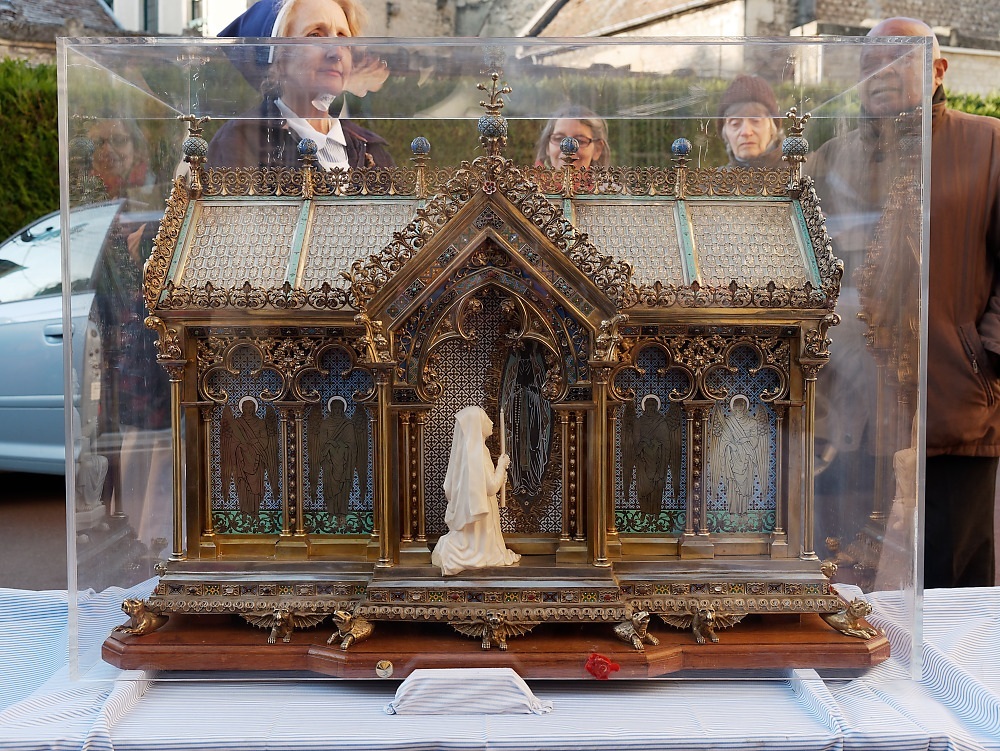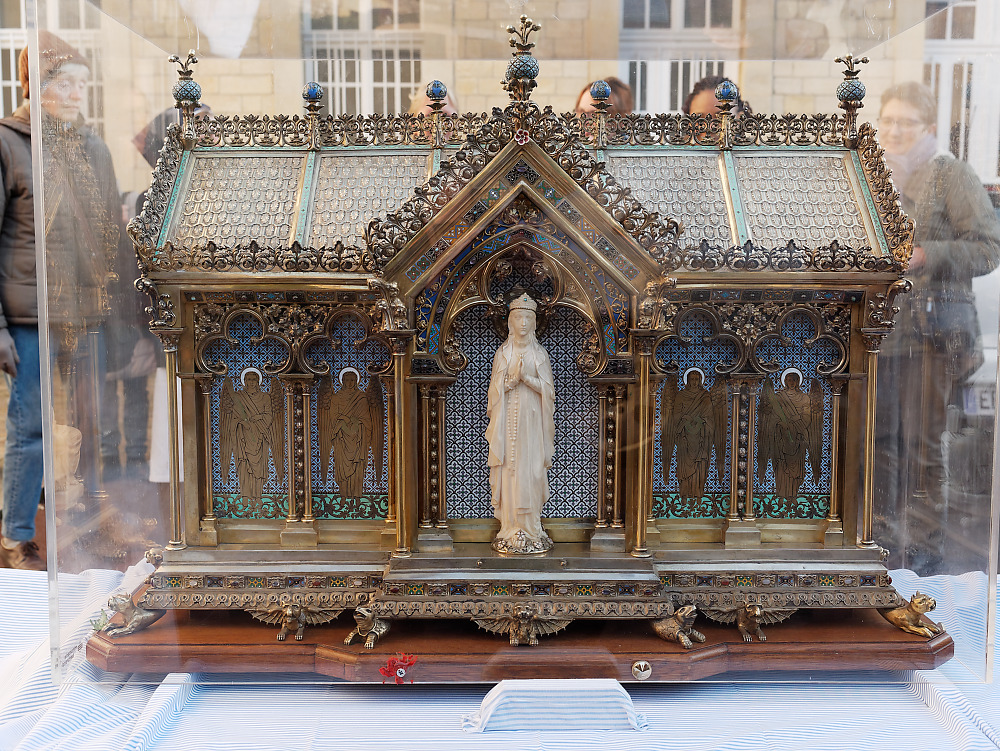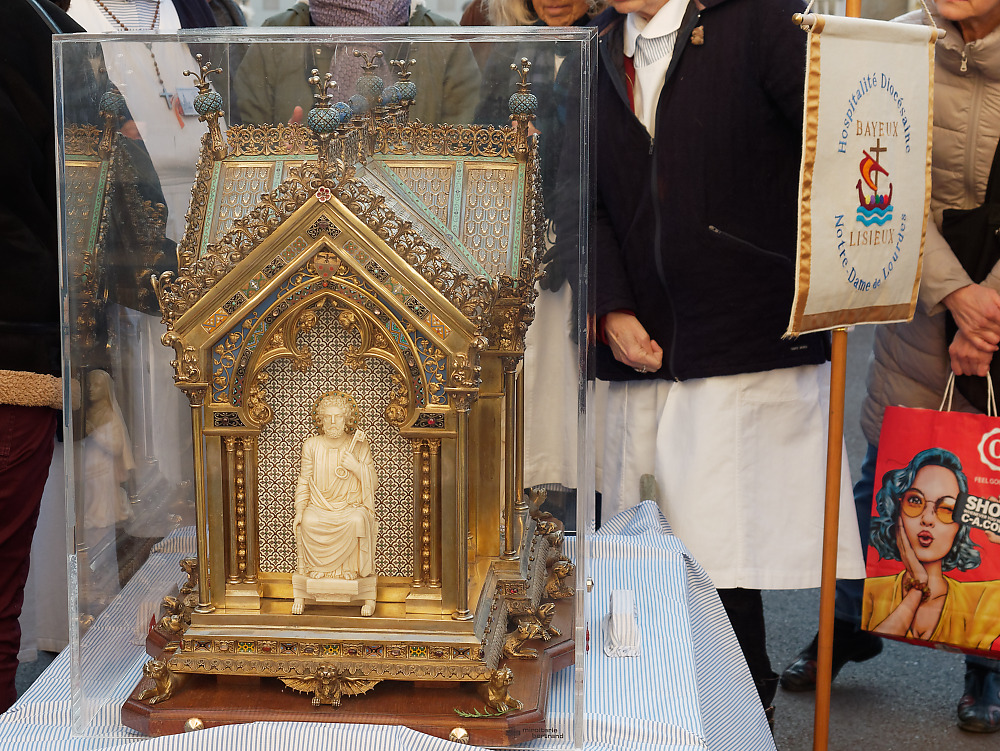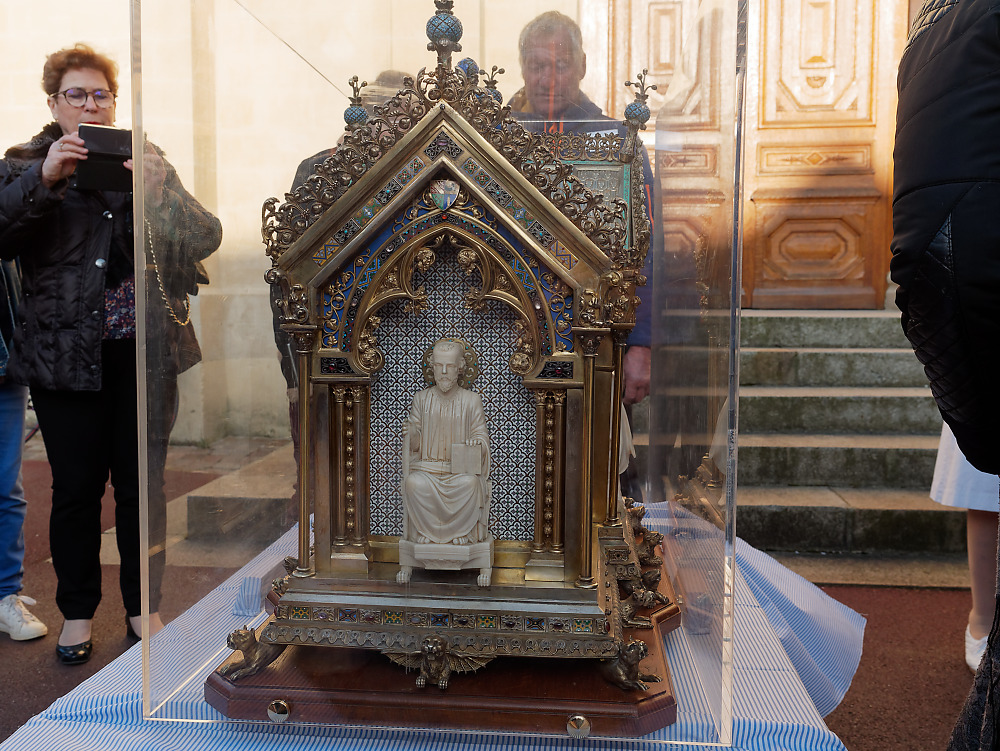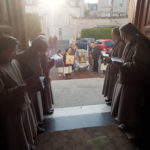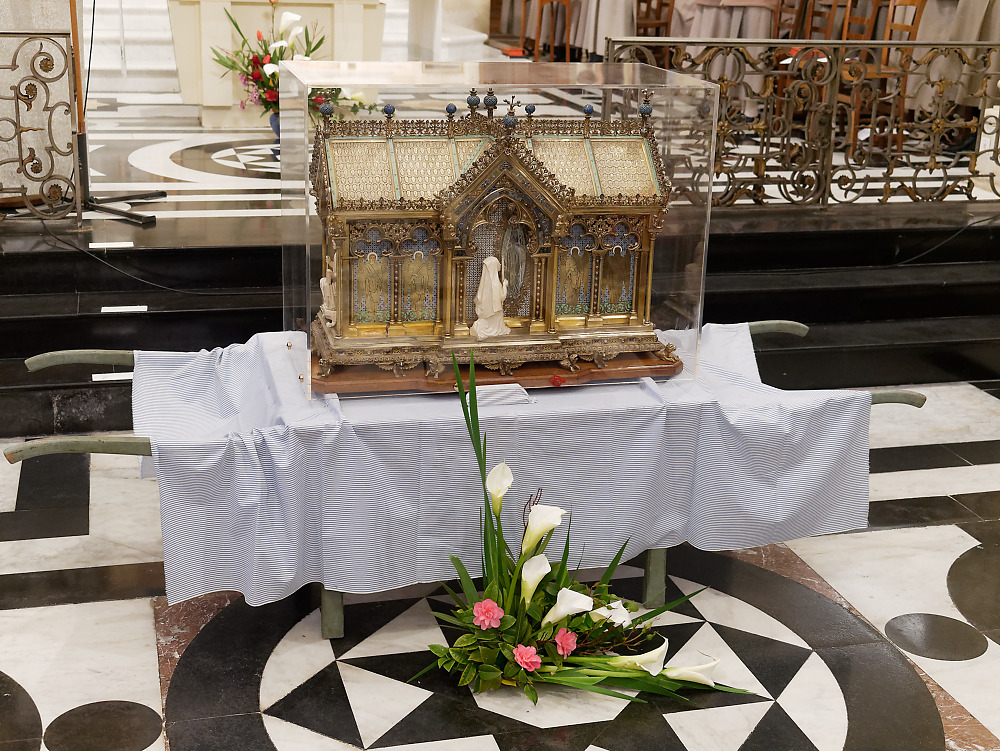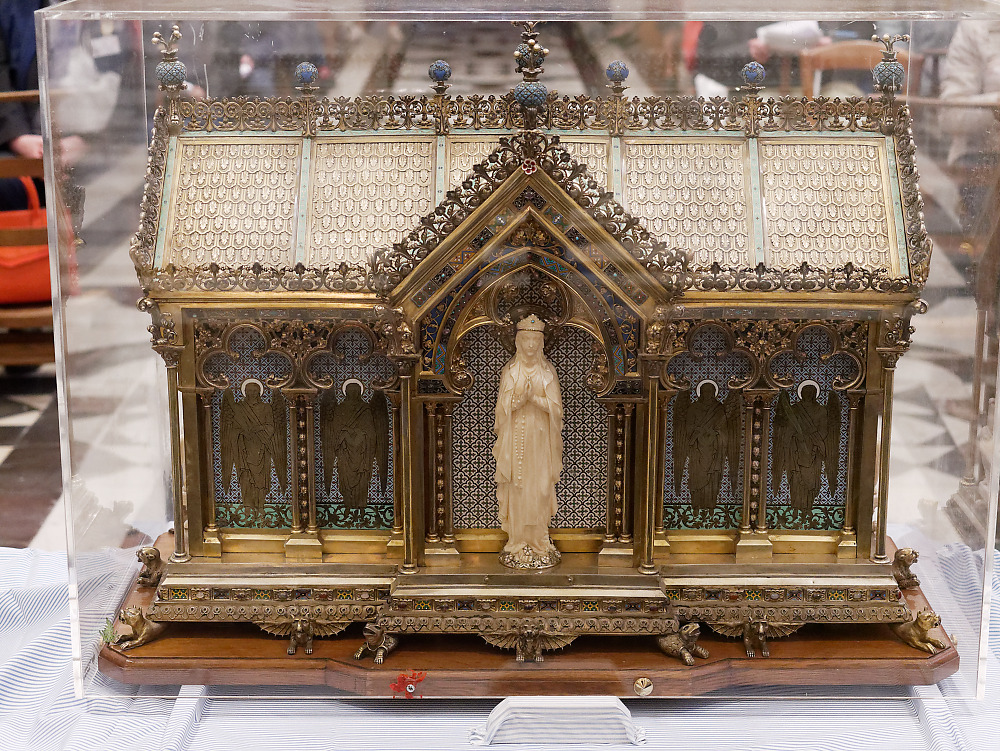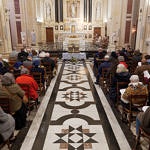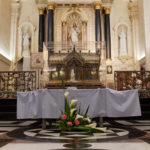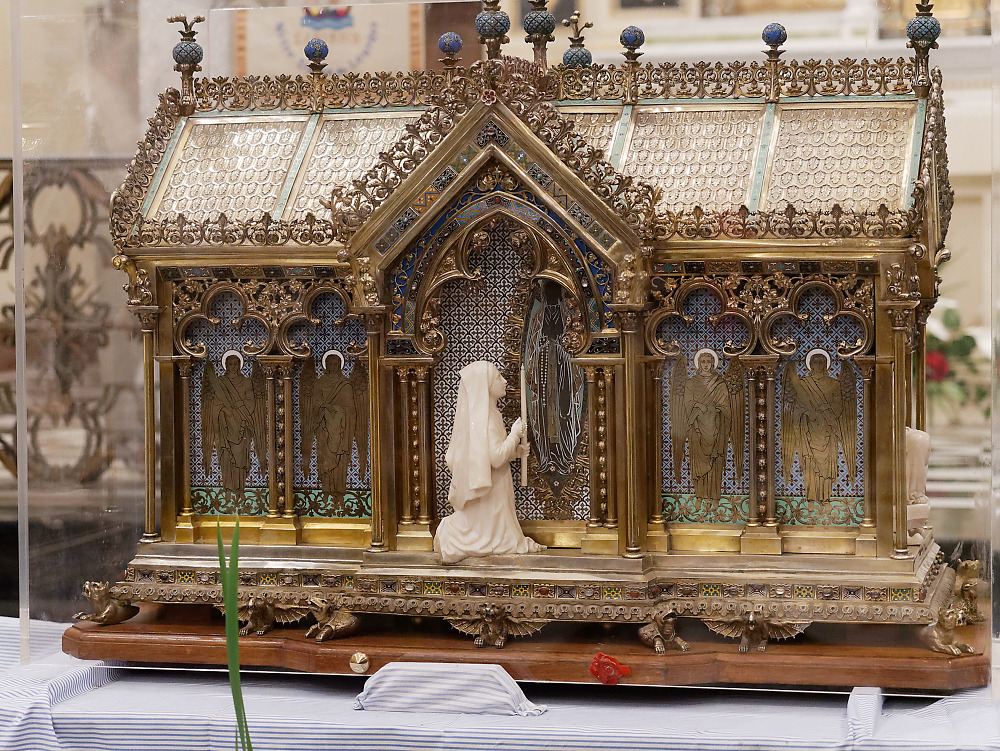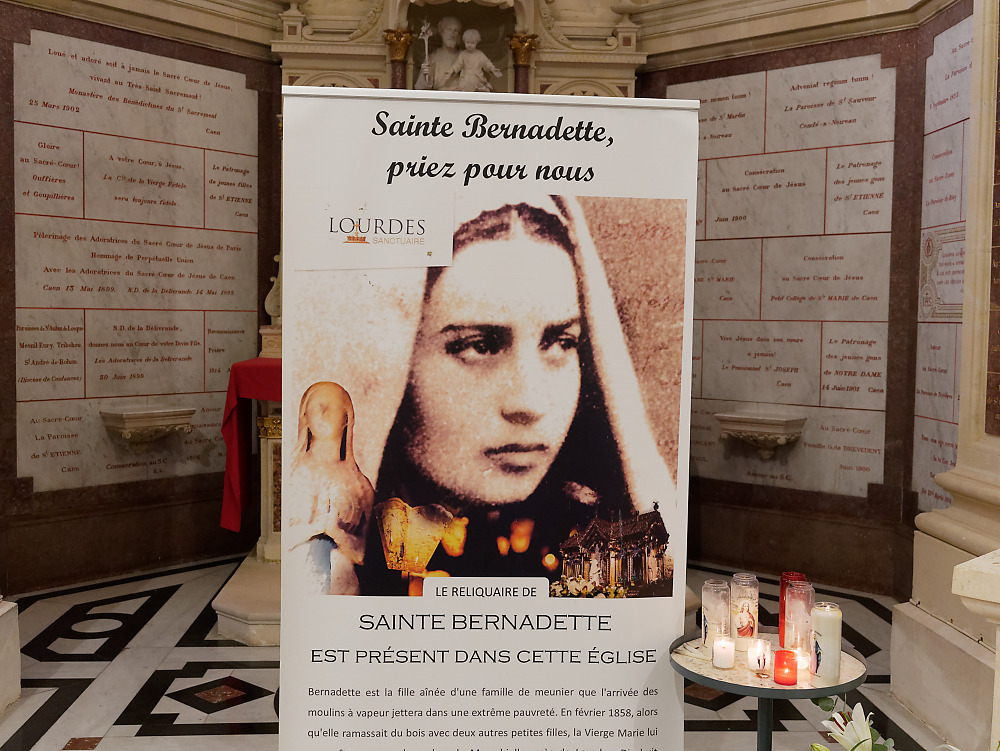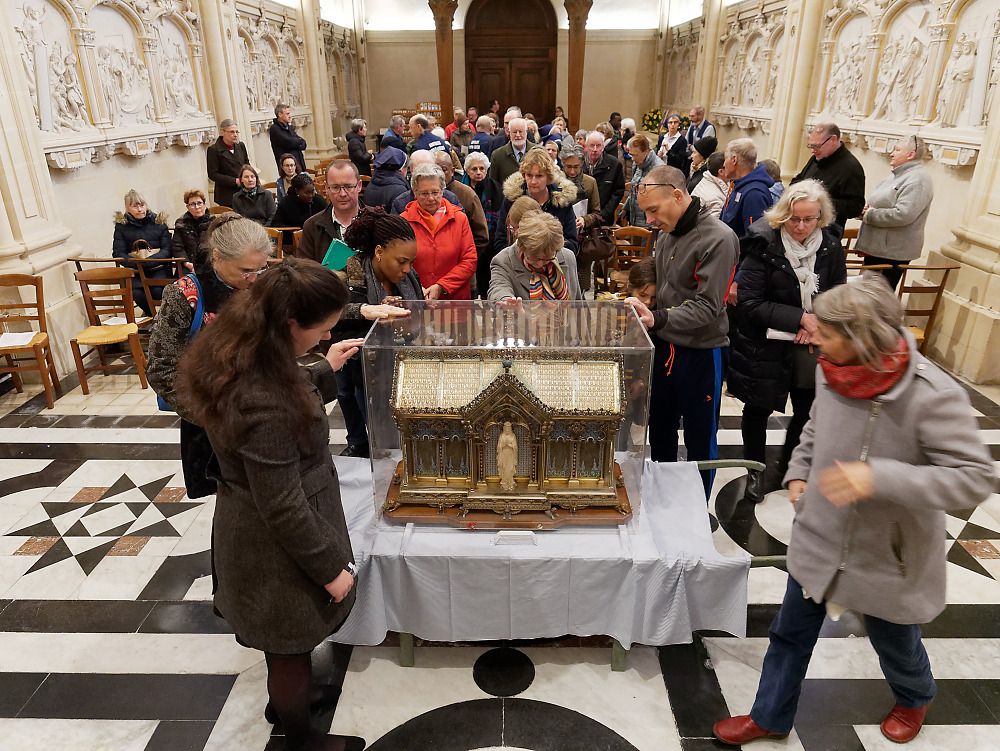Leonie Martin's First Communon: May 23, 1875
/Leonie martin at about age 20. cOURTESY OF THE VISITATION OF CAEN.
On Trinity Sunday, May 23, 1875, Leonie Martin, the future Servant of God, third daughter of Sts. Louis and Zelie Martin and elder sister of St. Therese of Lisieux, received her First Holy Communion in the church of Our Lady of the Assumption in Alencon. Today, during the centenary year of St. Therese’s canonization, we celebrate the 150th anniversary of that great grace.
Leonie’s Preparation for her First Communion
Background
Leonie was the only one of the five surviving Martin daughters who did not make her First Communion under the auspices of a monastery boarding school. Like her two older sisters, she had been sent to the Monastery of the Visitation in Le Mans, where her mother’s sister, Elise Guerin (Sister Marie-Dosithee), was among the nuns. Leonie’s learning disabilities and social difficulties made it impossible for her to be in a class with the other pupils; she would have required a private tutor, so she had been sent away twice. She took some lessons from a private teacher in Alencon. In January 1874, when she was ten, Louis and Zelie sent her to the Visitation in Le Mans a third time with her older sisters, hoping that she could be prepared for her First Communion there. Although Leonie did learn her catechism, the nuns could not keep her (much to Zelie’s distress), and she returned to Alencon on April 6, 1874.
In July Leonie began to take some lessons from two women who pretended that they had once been religious sisters. Zelie learned that they were abusing a foster child they had taken in; she took them to court to make sure the little girl, Armandine, was properly cared for, and she took Leonie away from them.
Leonie Prepares At Home and in her parish
In Alencon, Leonie joined the class of children who were being prepared for their First Communion in the parish of Our Lady of the Assumption, to which the Martin family had moved in 1871. Zelie also took on the task of preparing Leonie personally for her First Communion, postponing her lace work till late at night.
On December 13, 1874, Zelie wrote to her sister-in-law, Celine Guerin, who had asked what to send the children for New Year’s:
“As for Leonie . . . you could get her a rosary for her First Communion, which she’ll make on the feast of the Holy Trinity. She knows her catechism perfectly and answers the questions better than I would have believed. If she didn’t become flustered, she would be one of the first in her class. Last Tuesday [December 8, the feast of the Immaculate Conception], I took her on a pilgrimage to the Church of the Immaculate Conception in Seez to obtain the grace to make a good First Holy Communion.
from A Call to a Deeper Love: The Family Correspondence of the Parents of Saint Therese of the Child Jesus, 1863-1885, ed. Frances Renda, tr. Ann Connors Hess. (Staten Island, New York: Society of St. Paul/Alba House, 2011), p. 160.
Leonie was to receive her First Communion during the Universal Jubilee Year of 1875; we celebrate the 150th anniversary of this event during our Jubilee Year of 2025. On March 14, 1875, Zelie wrote to her sister-in-law again:
We’re currently celebrating the Jubilee in Alencon. . . . Leonie earned her Jubilee indulgence and received absolution. [In France at that time, younger children, when they went to confession, usually received a blessing; for them, absolutions were reserved for great occasions]. She was afraid of not being prepared well enough and this attitude pleased me. I hope God, in His mercy, answers my prayers for this child.”
Ibid., p. 175.
Then, on May 19, 1875, four days before Leonie’s First Communion, Zelie wrote to Celine Guerin;
I’m more pleased with Leonie. She does what she can to do well. She gives the correct answers when we question her and knows her catechism perfectly. Every day she tells us that she’s going to become a Poor Clare, and I have as much confidence in this as if it were little Therese saying it.
Ibid., p. 179.
Leonie’s First Communion Day
In her memoir, Story of a Soul, Therese, who was only 28 months old at the time, recounts her clear memory of Leonie’s First Communion. [Her mention of “Leonie’s little companion” refers to Armandine Dagoreau, a little girl whom Zelie, after the custom of the better-off families, had dressed for her First Communion and made a guest of honor at the festive dinner that night]. [Thanks to the Web site of the Archives of the Carmel of Lisieux and the Internet Archive].
Leonie’s remembrances of her First Communion Day
In Leonie’s surviving letters, we find at least five happy references to the various anniversaries of her First Communion. In a May 1928 letter to her sister Pauline, Leonie gives us insight into the fervent Eucharistic spirituality she shared with Therese:
What an immense blessing daily Communion is! What would become of us without Jesus? . . . Life would be unbearable, and the best and most efficient preparation, it seems to me, is to take Communion, because Jesus, the God of all purity, prepares our hearts Himself to become His beloved tabernacle.
[Thanks to the Web site of the Archives of the Carmel of Lisieux and the Internet Archive].
Yet Leonie remembers the day of her First Communion, and that whole period of her life, as unhappy. On May 23, 1937, she wrote to her sister Marie:
Beloved little sister,
It was 62 years ago today, on the fine feast of the Holy Trinity, and on the same date, that I took my first Communion. Would you believe it? Well, I have only sweet memories of it. It wasn’t the best day of my life, because my childhood and early youth were times of suffering and very painful trials.
Yet she continues immediately:
Nevertheless, blessed be those days and years spent in tears, for they did me much good. Despite my unworthiness, I too have had the oh so indescribable honour of becoming Jesus’ bride! In all truthfulness, the best day of my life was my religious profession on 2nd July 1900, the very day of our patronal feast. Tell me, darling little sisters, was I not granted an inner Visitation that day? Did I not sing my Magnificat alongside our divine Mother Mary?
[Thanks to the Web site of the Archives of the Carmel of Lisieux and the Internet Archive].
In later years, the future transfigured Leonie’s memory. She treasured the remembrance of her unhappy youth as a prelude to her vocation to the Visitation Monastery, which was her true home on earth and where she was so happy.
In this Jubilee Year of Hope, let’s ask the Servant of God, Leonie Martin, Sister Francoise-Therese, who entered religious life four times before succeeding, but never gave up hope,to help us realize the power of the Eucharist to transform our souls, our Church, and our world.
